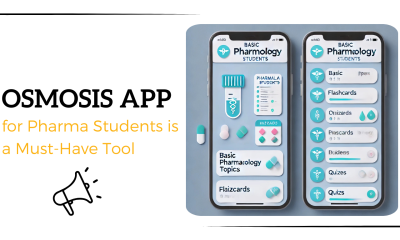Lifestyle
Self-Compassion for Working Moms: Balancing Self-Care with Motherhood

Self-Compassion for Working Moms: Balancing Self-Care with Motherhood
In today’s fast-paced world, balancing the responsibilities of a career with the demands of motherhood can feel like an impossible juggling act. Working moms often find themselves overwhelmed with guilt—guilt for not spending enough time with their kids, guilt for not excelling at work, and even guilt for taking a moment for themselves. However, embracing Self-compassion for working moms can be a transformative approach to reduce guilt and enhance resilience, empowering working moms to thrive in both their professional and personal lives.
What is self-compassion?
Self-compassion for working moms, a concept developed by psychologist Kristin Neff, involves treating yourself with the same kindness, understanding, and support that you would offer a close friend. It means recognizing that mistakes and struggles are part of being human and not letting self-criticism take over. For working moms, self-compassion is about acknowledging the challenges of balancing work and family life without blaming yourself for not being “perfect.”
Why Self-Compassion is Crucial for Working Moms
1. Reduces Guilt
Working moms often feel they’re falling short in one area of their lives or another. Self-compassion helps reduce guilt by shifting the focus from perfection to progress. Instead of dwelling on what wasn’t accomplished, it allows moms to appreciate their efforts and celebrate small victories.
2. Enhances Resilience
Motherhood and a demanding career can be emotionally draining, but self-compassion builds resilience. By recognizing that setbacks are natural and giving yourself grace during tough times, you develop the emotional strength needed to bounce back.
3. Improves Overall Well-Being
Research shows that self-compassion is linked to lower levels of anxiety and depression. For working moms, this translates into better mental health, which benefits not only themselves but also their families and workplaces.
Tips for Cultivating Self-Compassion as a Working Mom
1. Practice Positive Self-Talk
Replace harsh inner criticism with kind, supportive statements. For example, instead of saying, “I’m such a bad mom for missing the school event,” try, “I’m doing my best, and my love for my child shows in many other ways.”
2. Set Realistic Expectations
Trying to do everything perfectly is a recipe for burnout. Prioritize what truly matters and let go of the pressure to excel in every area. Remember, it’s okay to ask for help or delegate tasks.
3. Take Time for Yourself
Self-care is not selfish; it’s essential. Whether it’s a quiet cup of coffee in the morning, a yoga class, or simply reading a book, taking time to recharge helps you show up as the best version of yourself for both work and family.
4. Connect with Other Moms
Sharing experiences with other working moms can provide a sense of community and understanding. Knowing you’re not alone in your struggles makes it easier to practice self-compassion.
5. Acknowledge Your Achievements
Take a moment each day to reflect on what you’ve accomplished. Whether it’s nailing a presentation at work or reading a bedtime story to your child, every effort counts.
The Ripple Effect of Self-Compassion
When working moms practice self-compassion, it doesn’t just benefit them—it also creates a positive ripple effect. Children learn from their parents, and a mom who models self-kindness teaches her kids to be kind to themselves. Moreover, a resilient and guilt-free mom contributes to a happier, healthier household.
Self-compassion for working moms isn’t a luxury—it’s a necessity. By embracing kindness toward yourself, setting realistic expectations, and making time for self-care, you can reduce guilt, enhance resilience, and lead a balanced life. Remember, being a good mom isn’t about doing it all; it’s about doing your best while taking care of yourself along the way.
Personal Development
Stress Management impact on Beauty and Health

Stress Management impact on Beauty and Health
The key to maintaining overall well-being lies in effective stress management. By adopting healthy coping mechanisms, we can enhance our inner health and outer beauty, leading to a more balanced and fulfilling life. In today’s fast-paced world, stress has become an unavoidable part of life. While short-term stress can sometimes be beneficial, chronic stress can take a serious toll on both our health and appearance.
How Stress Affects Health
Stress triggers the release of cortisol, the primary stress hormone, which, when elevated for prolonged periods, can lead to various health concerns. Some common health effects of chronic stress include:
- Weakened Immune System: High stress levels reduce the body’s ability to fight infections, making individuals more prone to illnesses.
- Digestive Issues: Stress can disrupt digestion, leading to problems such as bloating, acid reflux, and irritable bowel syndrome.
- Heart Health Risks: Long-term stress increases the risk of hypertension, heart disease, and stroke.
- Sleep Disturbances: Stress often leads to insomnia or poor-quality sleep, further worsening overall health.
- Hormonal Imbalance: Stress affects hormonal balance, leading to menstrual irregularities, thyroid dysfunction, and metabolic disorders.
How Stress Affects Beauty
- Skin Problems: Stress contributes to acne, premature aging, and dull skin by increasing inflammation and oil production.
- Hair Loss: Elevated cortisol levels disrupt hair growth cycles, leading to thinning and excessive shedding.
- Dark Circles and Puffy Eyes: Poor sleep caused by stress can result in dark circles and eye puffiness.
- Brittle Nails: Chronic stress can lead to weak, brittle nails due to nutrient depletion.
The Role of Stress Management in Enhancing Beauty and Health
Effective stress management is essential for maintaining a healthy body and radiant appearance. Here are some ways to manage stress and improve both inner well-being and outer beauty:
- Practice Mindfulness and Meditation
Mindfulness and meditation help reduce stress by promoting relaxation and emotional balance. Just 10-15 minutes of deep breathing and meditation daily can significantly lower stress levels.
- Adopt a Healthy Diet
A balanced diet rich in antioxidants, vitamins, and minerals helps combat stress-related health and beauty issues. Incorporating foods like leafy greens, nuts, fruits, and fatty fish can nourish the skin, hair, and body.
- Get Quality Sleep
Prioritizing sleep is one of the most effective ways to manage stress. Aim for 7-8 hours of restful sleep to allow the body to repair and rejuvenate.
- Exercise Regularly
Physical activity releases endorphins, the body’s natural stress relievers. Activities like yoga, walking, and strength training not only improve mood but also boost skin glow and hair health.
- Engage in Self-Care Routines
Self-care activities such as skincare, aromatherapy, and spa treatments can provide relaxation and promote a sense of well-being.
- Stay Hydrated
Drinking plenty of water helps flush out toxins, keeping the skin clear and hydrated. Herbal teas like chamomile and green tea can also help manage stress naturally.
- Limit Caffeine and Sugar Intake
Excessive caffeine and sugar can contribute to stress and skin issues. Switching to herbal alternatives and whole foods can support a healthier body and mind.
Stress is an inevitable part of life, but managing it effectively can lead to a healthier body and a more radiant appearance. By incorporating stress management techniques into daily routines, individuals can protect their health, enhance their beauty, and improve overall well-being. Prioritizing mental and emotional wellness will not only bring inner peace but also reflect outwardly in glowing skin, strong hair, and a vibrant personality.
Personal Development
5 Effective Tips to Overcome Being Overwhelmed at Work

5 Effective Tips to Overcome Being Overwhelmed at Work
Being overwhelmed in workplace is a frequent issue in current society where people deal with their occupations. From short time frames to having to do multiple things concurrently, or having to meet those expectations, the pressure begins to mount. That said, there are strategies that will can be adopted to recuperate from work related anxiety.
It is time now to explore five practical steps to avoid being overwhelmed at the workplace:
1. Prioritize Your Tasks
The most common cause of stress at workplace is multitasking, or better yet, taking on more than one can handle at a time. First thing you have to do in the morning, is to write all that you have to do on a piece of paper and divide them into A, B and C priorities. First, complete the important things, and omit or postpone the less important ones. By scheduling, you make certain that you end up focusing most of your efforts on achieving the important tasks, thus making you realize you have not so much pressure as you thought.
2. Learn to Say No
If you get too involved or do too much, the leading reason is that it leads to feeling overwhelmed. Even if we try to be as supportive as we can be, when we develop habits that involve over-committing ourselves can let our energy levels dwindle and our productivity suffer. Start slowly practicing the art of saying no, to any activity that is not towards achieving your goal or one that you can not handle. Saying no to offers to take on more work is essential because it let’s you concentrate on what you are currently doing thus doing it to the best of your abilities.
3. Take Short Breaks
When that is the case, the mind and the body get tired and one feels drained up to the point of recklessness. It is important to factor short breaks into ones working schedule in order to revived themselves. It is important to have a 5–10 minutes break after every full hour of work, to minimize the extent of overworking and feeling overwhelmed. Get up from your computer, stand, walk, or even practice deep breathing for a few minutes.
4.Organize Your Workspace
Clutter is one of the leading causes of stress, therefore, maintaining effective and efficient working space could greatly help with lowering stress tiers. Disorder is the main cause of stress and when there is clutter, stress is bound to increase. Spend at least 5-10 minutes daily to declutter your work space, organize your papers and keep your tools properly. Clutter makes the environment stressful and makes it hard for you to gain control over your work to avoid work overload.
5. Practice Self-Compassion
Because of this, it’s particularly important to be careful with self-criticism when you find yourself overwhelmed at the workplace. But self-compassion is fully necessary for mental health to be in a good state. Tell yourself it is okay to set boundaries as much as possible; you are pushing as much as you can. There is always a need to correct mistakes made as a team and not nurse them, or dwell on them. Confuse yourself on a regular basis by offering yourself rewards after accomplishing something as simple as finishing a task.
Bonus Tip: Seek Support
In case the signs go on signaling feeling overwhelmed, one should not hesitate to find help. Disclose your working pressures and difficulties to a close up, manager, or counselor. At other times, all that is needed is a new pair of eyes to either come up with new ideas or ease a workload.
When you feel overwhelmed at work you may not have to let this take over your life. Therefore to overcome work stress, individuals must prioritise work, set limits, take breaks, organize themselves and be kind to themselves. As with most things, the little things matter, and they can help make big differences. These tips must be practiced today, certainly, you will experience a change in your productivity and mental health.
Lifestyle
Self Development Importance: Why It Matters

Self Development Importance: Why It Matters
Life using the path of self-development is highly crucial in the dynamic environment. Self-growth is the ongoing practice of improving oneself to reach personal and professional growth in terms of skills, knowledge, and emotional well-being. It’s a process that results in improved self-awareness, wiser choices and more purposeful action. So, let us look at the reasons as to why self-development is important.
Unlocking Your True Potential
Self-development is a very powerful tool that can help you reach your potential. Most of us do not get to know our hidden talents or the things we can do. By making an effort to improve oneself intentionally, participants can access these untapped reservoirs by learning new skills, stepping into discomfort and seeking feedback. Self-development is crucial because it can change your life from just a regular life to an outstanding one.
Building Emotional Resilience
From only having solace and joy through friends, there are still those with emotional resilience have the presence of mind to separate the up and down swings of life. Employing self-development allows people to cope with stress, learn from failure, and forge ahead with great optimism. Practices such as mindfulness, emotional intelligence, solidarity, and constructive self-judgment give you the fortitude to confront life’s challenges with elegance. Abiding by this, such integrity is a key element in attaining rapid growth and emphasizes the significance of self-development, to ensure a sound mental health.
Enhancing Career Prospects
Personal development is a major difference-maker in the competitive world of today. Investing in your development is important, as it signals to employers that you are proactive and adaptable. Self-development is not just required for professional success, but it also comes as soft skills with courses and workshops, which help in enhancing skills for a symbol of professional excellence. Enhancing your value in the market, while also giving you the confidence to excel in your field.
Strengthening Relationships
The factors that enable productive relationships, at work and at home include understanding, empathy, and communication. Self-development is important to get more of this quality. Improving your interpersonal skills and emotional intelligence will help you build more profound relationships with those around you.” Clearly, self-development has a role to play here, and relationships that are more harmonious and meaningful improve your life.
Cultivating a Growth Mindset
A growth mindset is the understanding that abilities and intelligence can be developed and enhanced through effort and persistence. And, so the mindset of self-development nurture within yourself the ability to face challenges, take risks, and learn from failures. His ability to turn setbacks into growth opportunities reminds us that self-development is one of the keys to lifelong learning and, ultimately, success in life.
Self-development is a task that is subtly related to, all aspects of life. It enables individuals to achieve new heights, adapt to challenges, develop emotional resilience, improve career opportunities, nurture relationships, and most importantly, embrace a growth mindset. Not only are you enriching your own journey through this, but you also become an example to those around you of what a path of growth might look like. Keep in mind, personal growth is not an event: it is a journey that cannot end, but gives you tools to help you live your life clearer and closer to your purpose. Begin now, and allow it to become a part of who you are.
-

 Healthy Habits6 months ago
Healthy Habits6 months ago5 Morning Routines for Maximum Energy
-

 Sustainable Living6 months ago
Sustainable Living6 months agoImportance of Self-Love in Mental Health
-

 Healthy Habits6 months ago
Healthy Habits6 months agoBest 6 Ways to Stay Mentally and Physically Healthy
-

 Stress Management6 months ago
Stress Management6 months agoBalancing Multiple Roles: How Trying to Be the Best in All Areas Leads to Feeling Stretched
-

 Mindfulness7 months ago
Mindfulness7 months agoMindfulness
-

 Mindfulness6 months ago
Mindfulness6 months ago“Practice of Mindfulness: Unlock the Power of Empowering Self”.
-

 Meditation Practices6 months ago
Meditation Practices6 months agoOsmosis App for Pharma Students is a Must-Have Tool
-

 Healthy Habits6 months ago
Healthy Habits6 months agoMenstrual Cycle Journal to Empower Your Health













